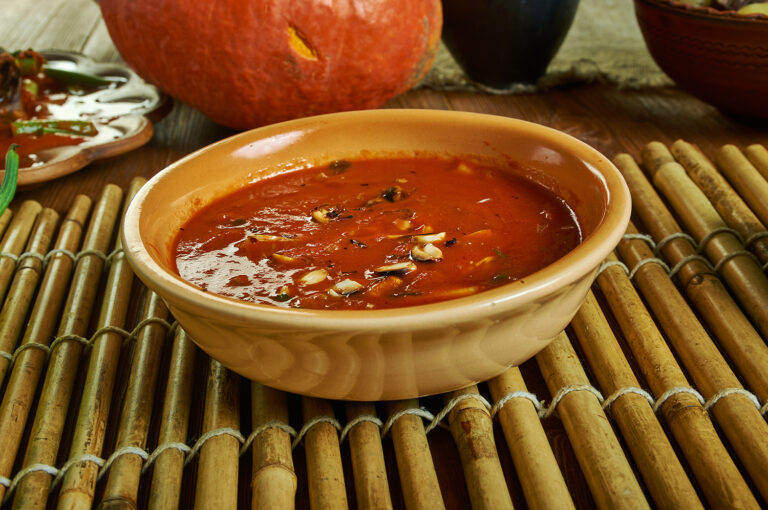Introduction to Muamba Nsusu Soup
Muamba Nsusu, also known as Palm Nut Soup, is a traditional African dish that has been enjoyed for centuries. This rich and flavorful soup is a staple in many African households and is a popular dish in countries such as Angola, Congo, and Cameroon. The soup is made from palm nuts, which are boiled and then pounded to create a thick and creamy base for the soup. Muamba Nsusu is typically served with rice, fufu or cassava.
Ingredients and Preparation of Muamba Nsusu
The ingredients for Muamba Nsusu are simple and easy to find in most African markets. The soup is made from palm nuts, chicken, onions, garlic, tomatoes, ginger, scotch bonnet peppers, and various spices such as salt, pepper, and nutmeg. To prepare the soup, the palm nuts are boiled and then pounded until they create a thick paste. The paste is then mixed with water to create a creamy base for the soup. Chicken and vegetables are then added to the soup and left to simmer until everything is cooked through. The result is a delicious and savory soup that is perfect for a cozy night in.
The History and Cultural Significance of Muamba Nsusu
Muamba Nsusu has a rich history that is intertwined with the culture of many African countries. The soup has been enjoyed for centuries and is often served at special occasions such as weddings and funerals. The dish is also associated with hospitality and is often offered to guests as a symbol of welcome and warmth. In many African cultures, the preparation of Muamba Nsusu is a laborious process that is often shared amongst family members. The pounding of the palm nuts is often done in large groups, and the process is accompanied by singing and dancing. This communal aspect of preparing Muamba Nsusu is an important part of the cultural significance of the dish.


